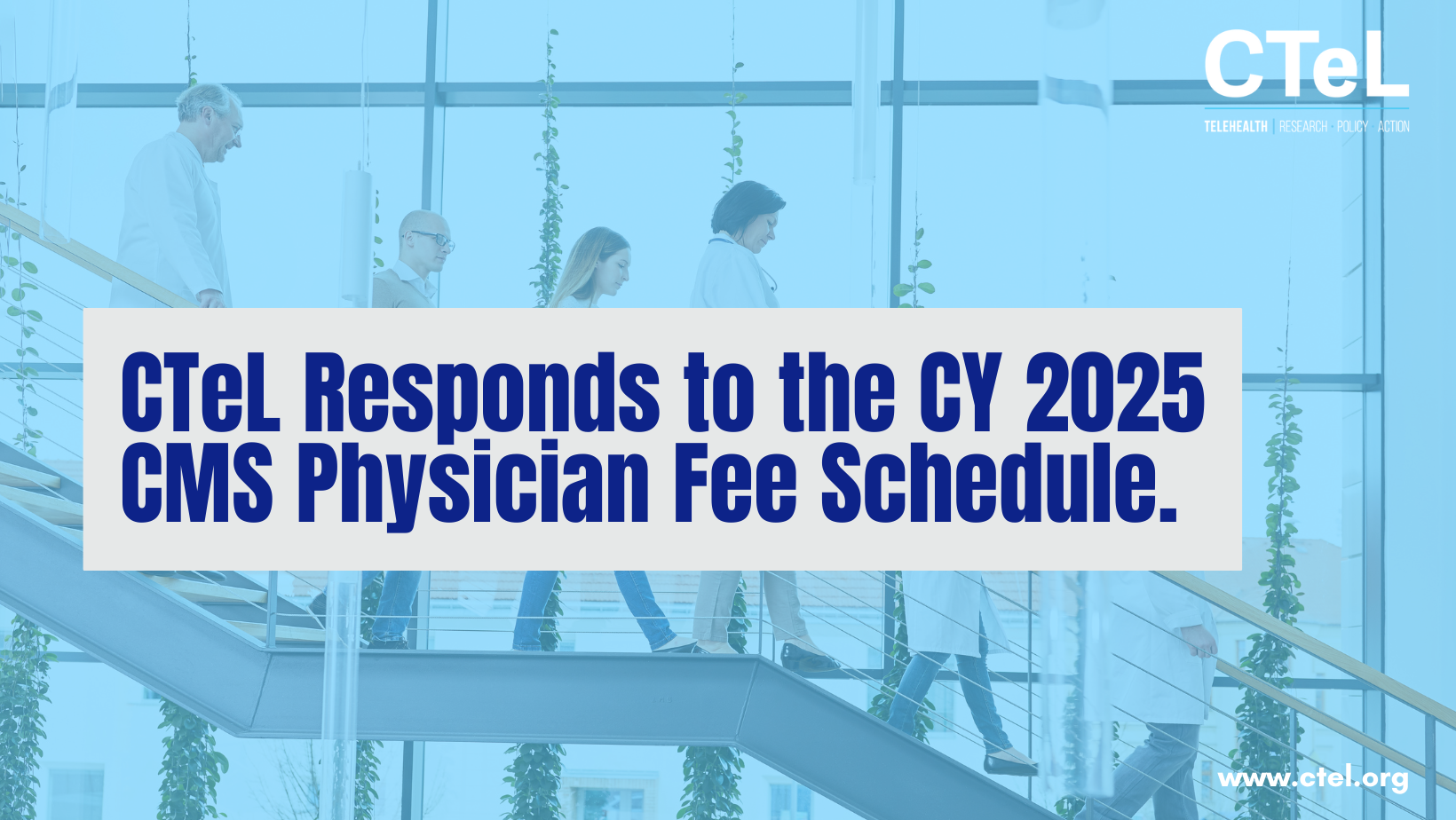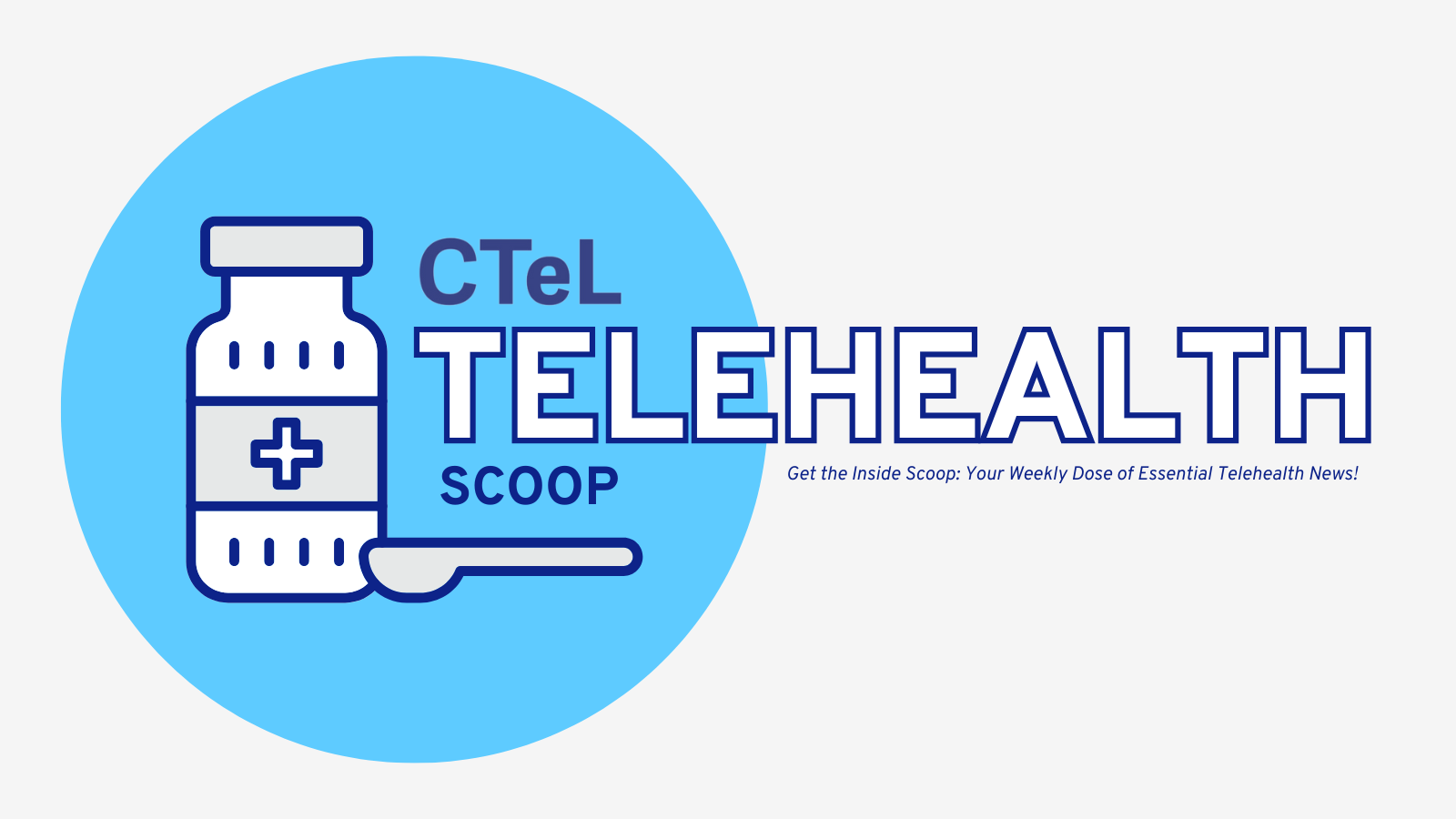
CTeL Advocates for Adoption of Washington’s Telehealth Licensure Policy Nationwide
Advancing Telehealth Access Nationwide: CTeL Urges Support for Washington State’s Telehealth Licensure Policy
Today, CTeL issued a call to action for national and state organizations, including the National Governors Association (NGA) and Federation of State Medical Boards (FSMB), to support Washington State’s Uniform Telehealth Act (SB 5481). This groundbreaking policy, enacted in June 2024, allows out-of-state clinicians with valid licenses to provide critical telehealth services to patients in Washington, expanding access to specialized care.
CTeL Executive Director Christa Natoli highlights this law as a model for the nation:
"Washington’s policy enables patients to maintain relationships with out-of-state specialists and continue receiving life-saving care. Expanding similar frameworks across the country will ensure access to high-quality healthcare for all."
CTeL is urging leaders to take action and adopt policies that ensure continuity of care, protect patient safety, and enhance telehealth innovation. Let's work together to break down barriers and build a healthcare system that works for everyone.

Don't Let Fraud Derail the Future of Remote Patient Monitoring
The recent report from the Department of Health and Human Services’ Office of Inspector General (OIG) has sparked concern and chatter about potential fraud, waste, and abuse in remote physiologic monitoring (RPM) practices. While the report underscores valid points about billing and transparency, we mustn't let fears of fraud overshadow the transformative potential of RPM. Instead, we must focus on enhancing the system to prevent fraud while continuing to provide quality care to patients.

Addressing the Healthcare Staffing Crisis: A Call for Virtual Education and Administrative Relief
The healthcare industry is facing an unprecedented emergency. Nursing shortages have placed an unbearable strain on hospitals and care facilities nationwide, with entire communities now feeling the consequences. In Alabama, CitiHealth Hospital in Oneonta was forced to suspend operations—closing its doors—not because of financial struggles, but because there simply weren’t enough nurses to provide care. This is not a one-off incident; across the U.S., the healthcare system is buckling under the weight of this crisis. Nurses are leaving the workforce in droves, with too few entering the profession to replace them.

Addressing the Maternal Healthcare Crisis: Insights from March of Dimes’ 2024 Maternity Care Deserts Report and the Role of Telehealth
Access to maternal healthcare in the United States remains an urgent public health issue, as highlighted by March of Dimes in their 2024 report, Nowhere to Go: Maternity Care Deserts Across the US. The report exposes the extent of maternal care deserts—areas with limited or no access to maternity services—and underscores the growing need for collaboration between policymakers, healthcare providers, and community leaders to address this alarming crisis. One of the key solutions proposed to bridge this gap is the use of telehealth to expand access to care for those living in underserved areas.

Telehealth Access is at Risk: How Did We Get Here?
The Telehealth Modernization Act represents a pivotal effort to expand and integrate telehealth into the U.S. healthcare system. Originally sparked by the need to adapt during the COVID-19 pandemic, this legislation has evolved to address longstanding limitations in telehealth access. Below, we explore the history and significance of this act and its role in shaping the future of healthcare delivery.

White House Announces Final Rules on Mental Health Parity and Addiction Equity Act Implementation
On September 9, 2024, the White House announced the issuance of final rules, jointly filed by the Department of Labor, Department of Health and Human Services, and the Internal Revenue Service, to implement critical parts of the Mental Health Parity and Addiction Equity Act of 2008. These rules aim to ensure equal access to mental health and substance use disorder (MH/SUD) care, aligning it with the access provided for medical and surgical treatments.

Risk of Suicide Rate Increase without Access to TeleMental Health Services.
The expiration of telehealth waivers for prescribing controlled substances on December 31, 2024, is a critical policy shift that could impact mental health care access and suicide prevention efforts, particularly in vulnerable populations. Findings from a recent research report emphasize the importance of three county-level factors—health insurance coverage, broadband Internet access, and household income—in relation to suicide rates. The expiration of these waivers raises concerns, as these factors align closely with access to telehealth services, including the prescription of controlled substances that are often crucial in mental health treatment.

What is Information Blocking and What is it not?

CTeL Responds to the CY 2025 CMS Physician Fee Schedule
In a letter to Centers for Medicare and Medicaid Services (CMS), the Center for Telehealth and e-Health Law (CTeL) warned of the financial and clinical impacts of reduced telehealth access.

CTeL Urges DEA to Extend Telehealth Waivers for Prescribing Controlled Substances, Preventing Healthcare Crisis
Subscribe to the Telehealth Scoop!
Get the latest telehealth policy news you need to know, right to your inbox. Stay up-to-date on all the latest CTeL happenings, events, actions, and more!

